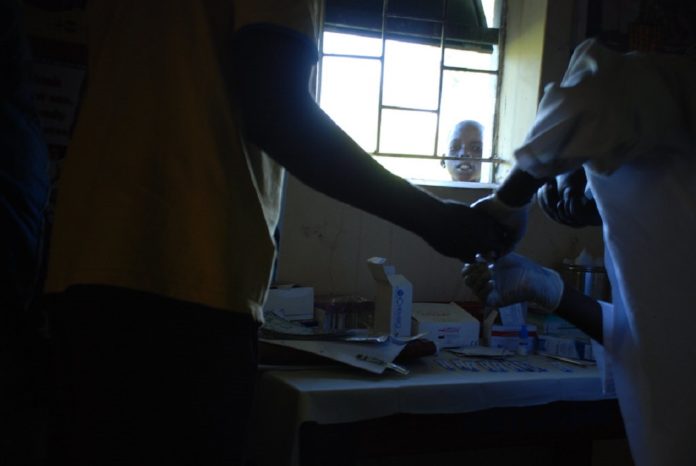
Madagascar is the fourth largest island in the world, situated on the southeast coast of Africa. The country gained independence from France in 1960 and has since been plagued by political instability including coups, violent protests and disputed elections. The political instability in Madagascar is one of the reasons for the country’s surge in HIV infections.
Spokesperson for the United Nations Children’s Fund (UNICEF) Madagascar Timothy James Irwin spoke to The Daily Vox about the HIV infection rates in Madagascar.
“The prevalence of HIV in Madagascar is around 0.3 %, which is low for the region,” Irwin said.
There are an estimated 35,000 people infected. Most of those infected fall into the three high-risk groups: men who have sex with men (who make up 14% of those infected); sex workers (8.5 %); and users of injectionable drugs (5.5%).
But since 2010, infection rates in the country have risen by around 150%. Irwin says its difficult to pinpoint a single cause for the spike in infections.
The infection rates started to increase following the 2009 coup in Madagascar which led to five years of political deadlock, international condemnation and economic sanctions. But the political situation in the country remains tenuous.
President Andry Rajoelina won the second round of the presidential election ahead of opponent Marc Ravalomanana in December 2018. These elections were not without controversy. Ravalomanana slated the elections for fraud and petitioned the Constitutional Court. But the Constitutional Court confirmed the winner of the elections in January.
Both opponents are former Malagasy presidents. Rajoelina previously held office from 2009–2014.
Since the coup, HIV has not been a political priority in the country. Irwin says the protracted political crisis may have deprioritised HIV/AIDS awareness and prevention.
“These years followed a period of political crisis during which HIV awareness may not have been as high a priority as previously. Foreign aid to Madagascar also decreased due to the crisis,” Irwin said.
“There would also have been a large number of young people becoming sexually active in a country where HIV awareness and condom use are both low,” Irwin said.
Other reasons for the rise in infections could be an avoidance of HIV testing. Less than 10 % of the country has been tested for HIV, Irwin said. Only about 4,000 people in the country know their HIV status.
“We see that if people do not want to be screened, it is for many– almost half — out of denial. They think that HIV doesn’t exist or that it doesn’t concern them. Or they are afraid of being stigmatised as a person with HIV if they are found to be positive,” Yoann Maldonado, general coordinator for Doctors of the World, told France24.
Irwin says there are ways to lower the infection rates. One of the ways is to raise public awareness of the diseases, means of prevention and the advantages of being tested and knowing one’s status. Antiretrovirals are also free in Madagascar, Irwin said.
In Madagascar, UNICEF’s main focus is on preventing the transmission of HIV from mother to child and raising awareness. An estimated 1,000 pregnant women are infected with HIV. “We train community workers to sensitise pregnant women and adolescent girls while promoting testing and support,” Irwin said.








